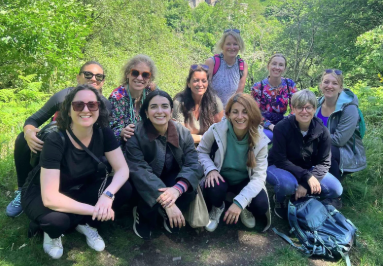Polyglots—people who speak several languages—have mastered the art of language learning through years of experience. Their techniques are often practical, creative, and highly effective. If you’re looking for strategies that work, take a page from their playbook. Here are some of the best language learning tips shared by polyglots around the world.
1. Start Speaking from Day One
Don’t wait to be “fluent” before speaking. Polyglots recommend using your target language as soon as possible. Simple phrases, greetings, and self-introductions are a great place to begin. Speaking early builds confidence and develops fluency faster.
2. Focus on High-Frequency Words
Learn the most commonly used words first. These include greetings, questions, everyday verbs, and essential nouns. Mastering these gives you the tools to start forming useful sentences quickly.
3. Immerse Yourself Daily
Create a language-rich environment. Listen to music, watch shows, follow social media in your target language, and think in the language throughout the day. Polyglots surround themselves with the language—even if they don’t live in a country where it’s spoken.
4. Use Spaced Repetition for Vocabulary
Tools like Anki or Quizlet help review words just before you’re likely to forget them. This method is highly recommended by polyglots for long-term retention of vocabulary.
5. Learn in Context
Don’t just memorize isolated words. Learn them in full sentences or phrases. This makes it easier to remember usage and helps you speak more naturally.
6. Make Language Learning Personal
Study topics that interest you—whether it’s cooking, sports, or travel. Polyglots often connect learning with their passions, making study more enjoyable and sustainable.
7. Use the Language Creatively
Keep a journal, write poems, create stories, or talk to yourself in your target language. These practices help you internalize vocabulary and grammar while expressing yourself naturally.
8. Be Consistent, Not Perfect
Daily practice is more effective than long, infrequent sessions. Polyglots stress the importance of consistency. Even 15 minutes a day can lead to big progress over time.
9. Embrace Mistakes
Mistakes are essential to growth. Polyglots often make a point of speaking without fear, knowing errors lead to improvement. The more you use the language, the better you get.
10. Connect with Native Speakers
Nothing replaces real conversation. Find language partners, join exchange apps, or attend meetups. Practicing with native speakers sharpens your skills and gives insight into culture and expression.
Final Thought
Polyglots aren’t superhuman—they’ve just developed effective habits and a love for learning. By applying their tips with patience and curiosity, anyone can make language learning more efficient, enjoyable, and successful.






